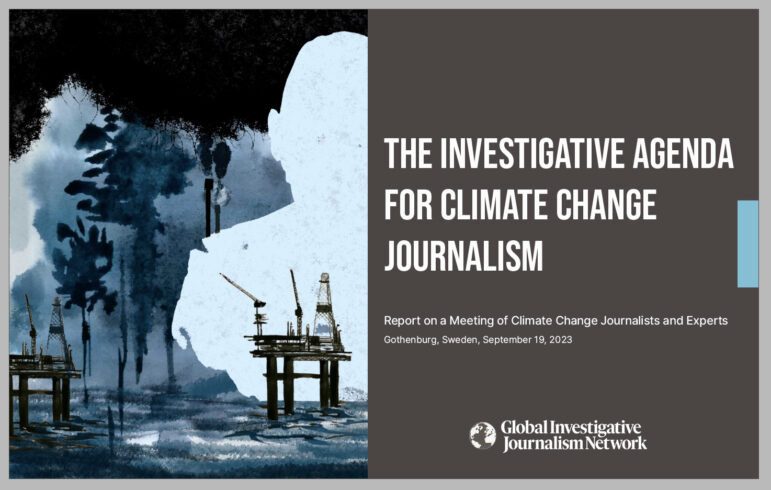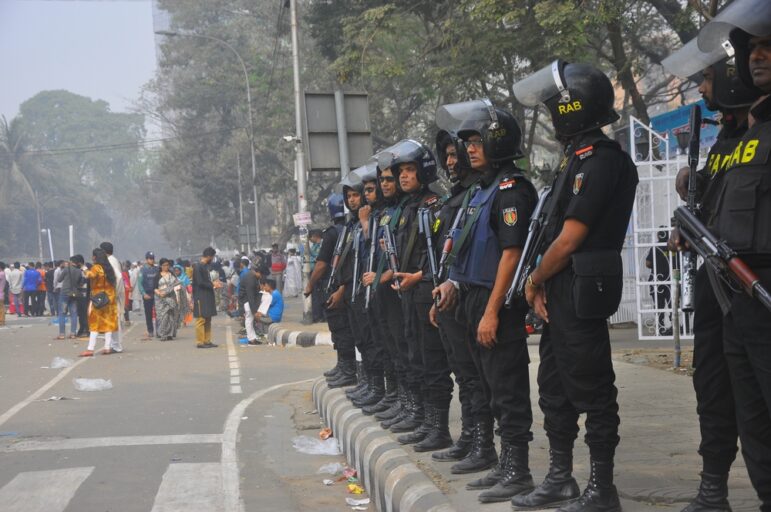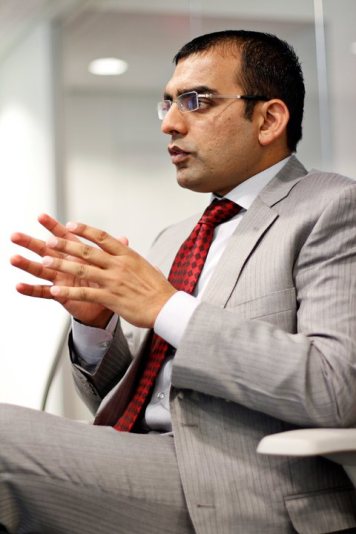

How To Do Investigative Reporting in Pakistan
When journalist Umar Cheema launched the Center for Investigative Reporting in Pakistan (CIRP) last week, he did so with a bang: A blockbuster story that hit the headlines around the world. Two-thirds of Pakistani MPs, his report said, do not pay their taxes. Neither did President Asif Ali Zardari – famous for his spending sprees, polo games and luxurious country estates – and more than half the Cabinet.
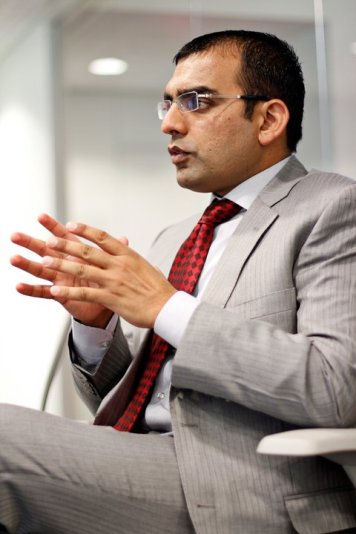 Umar Cheema, a pioneer of painstaking, document-based investigative reporting in Pakistan. (Photo courtesy of Umar Cheema)
Umar Cheema, a pioneer of painstaking, document-based investigative reporting in Pakistan. (Photo courtesy of Umar Cheema)
One would think that given his history, Cheema would be more cautious about exposing wrongdoing. Two years ago, while driving home from a dinner, he was seized from his car by men in black commando garb. He was brought to a house where he was stripped naked, beaten and sexually assaulted. Unlike victims of similar abductions, Cheema spoke out and said Pakistan’s Inter-Services Intelligence (ISI) agency was responsible for the attack.
When I called him in Islamabad over the weekend, Cheema was still dealing with the furor raised by his tax story. He expected this. After all, he named names. In a 70-page booklet called, Representation without Taxation, which was released online and in a press conference last week, he listed all the members of Parliament who who didn’t pay any tax at all. He also published the names of those who had paid taxes in 2011 and the amounts they remitted to the government.
MPs roundly denied the charges and accused Cheema of being on the payroll of their rivals and of timing the report for the elections, which will likely be held in the spring. “The opposition and the administration have joined hands to wage attacks on me and malign me,” he said. But he could document each and every charge, including the last rupee of tax paid. It took six months, he said, to gather the information, verify and then verify again. He knew that he would pay dearly for any mistake. “We were doing naming and shaming,” he said, “and we had to be extra careful.”
As investigative reporter for The News, Cheema had taken on the military and the intelligence services and exposed Zardari’s corruption. Now he is on his biggest story yet. It’s a story that has resonance in a country where tax evasion is the norm and where the tax to GDP ratio is among the lowest in the world, worse even than neighboring Afghanistan. It resonates among donors as well – Pakistan relies on billions of dollars in foreign aid, but is unable to provide basic services to its people. Readers loved the report but the MPs were livid. Today the National Assembly proposed a controversial tax amnesty bill that would allow tax dodgers to legitimize their assets by declaring them and paying just 100 rupees. These declarations would also exempt them from investigation by tax officials. Some MPs also proposed a new law that would put more constraints on media reporting.
As in most other countries, tax recor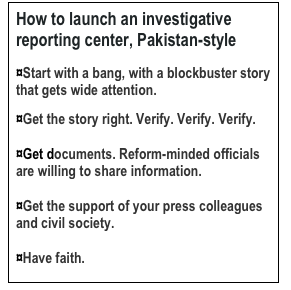 ds are not public in Pakistan, but Cheema had the cooperation of officials frustrated with the low rate of tax collection in the country and who provided him the documents he needed. “I collected the information from the people who had access to the data,” he said. “You require a certain amount of trust. If people have been in the tax department for years and realize all the big guns are evading taxes, they feel frustrated. If they find like-minded people in the journalism community who have the urge to do something, they try to help.”
ds are not public in Pakistan, but Cheema had the cooperation of officials frustrated with the low rate of tax collection in the country and who provided him the documents he needed. “I collected the information from the people who had access to the data,” he said. “You require a certain amount of trust. If people have been in the tax department for years and realize all the big guns are evading taxes, they feel frustrated. If they find like-minded people in the journalism community who have the urge to do something, they try to help.”
Cheema has been writing about taxes for the past couple of years and had been collecting tax information on federal and provincial officials.
Candidates vying for political office in Pakistan are required to declare how much taxes they paid, but those declarations are often inaccurate. Cheema says his initial reporting based on candidate nomination forms didn’t generate much attention. His newspaper was also not too keen the story. The paper was critical of the president, but like other news media in Pakistan, was wary of taking on tax issues for fear of being audited for taxes in turn.
“I had to fight for publication until I finally realized that story wouldn’t happen in my newspaper,” he said, “so we waited to do it with the Center for Investigative Reporting and to share it with foreign and local media so that it would go far and wide and have more impact.” Cheema had been thinking about such a center for some time now so that he could propagate the kind of painstaking, document-based reporting that he likes to do but is uncommon in Pakistan’s vibrant, if somewhat shallow, press.
If Cheema wanted to make waves and stir up public support for his new center, he certainly succeeded. He’s now planning to do a second and a third report, also on taxes because, he says, “tax evasion is the norm here and many people are not educated how pervasive the problem is. Through naming, we will let people know.”
The research on taxes was supported by a local NGO, the Centre for Peace and Development Initiaties. Cheema hopes to generate funding for his own center locally because he doesn’t want to be accused of being a foreign agent, as many groups who receive foreign funding have been. “The report,” he said, “has made people realize how important investigative journalism is and how important such kinds of disclosures are and we are now in a better position to present our case for the center and asking potential doors for some help.”
Cheema hopes to get some support from some media companies as well, both for writing reports as well as training. His paper and his colleagues are fully behind his exposé and so are groups in Pakistan’s nascent civil society. For now, he refuses to be distracted by threats. “Everywhere I go,” said Cheema, “people are thanking me. This will keep me going. If you ask me in my 11 years in journalism, this is the best thing I have done and this is something that I have wanted to do and have been planning for a long time, but the moment has come now and I want to do more work. I have faith in Pakistan.”
Sheila Coronel is director of the Stabile Center for Investigative Journalism at Columbia University. This is reprinted from her blog, Watchdog Watcher.

